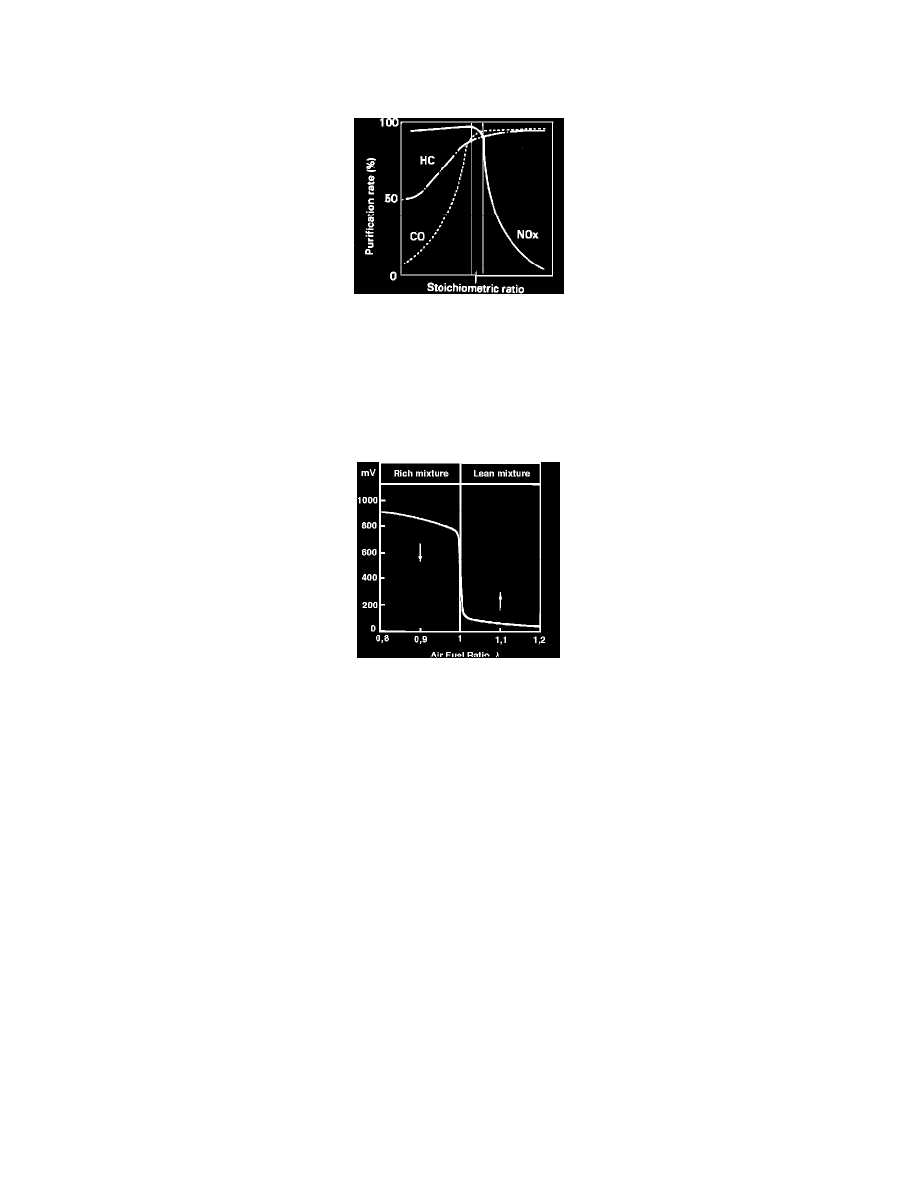Laser FWD L4-1997cc 2.0L DOHC Turbo (1993)

Construction
The oxygen sensor is made of a ceramic material called zirconium dioxide. The inner and outer surfaces of the ceramic material are coated with a
very thin layer of platinum. The outer surface is exposed to exhaust gasses, while the inner surface is exposed to outside air.
Catalytic Converter Performance
Operation
The difference in the amount of oxygen contacting the inner and outer surfaces of the oxygen sensor creates a pressure differential which results in
a voltage signal being generated. The amount of voltage produced is determined by combustion efficiency.
Voltage output from the Oxygen Sensor can reach 0.9 volts DC when the fuel air mixture is too rich and about 0.1 volts DC when the mixture is
too lean, with a sharp voltage transition from high to low at the stoichiometric point.
Oxygen Sensor Voltage vs Fuel/Air Ratio
The ECU's instant mixture adjustment in response to the voltage output of the oxygen sensor causes the output voltage from the Oxygen Sensor to
fluctuate rapidly between 0.1 and 0.9 volts DC and will be observed as an average of about 0.6 volts DC when measured with a voltmeter.
